From Outsourcing Oppression to Unschooling for Liberation
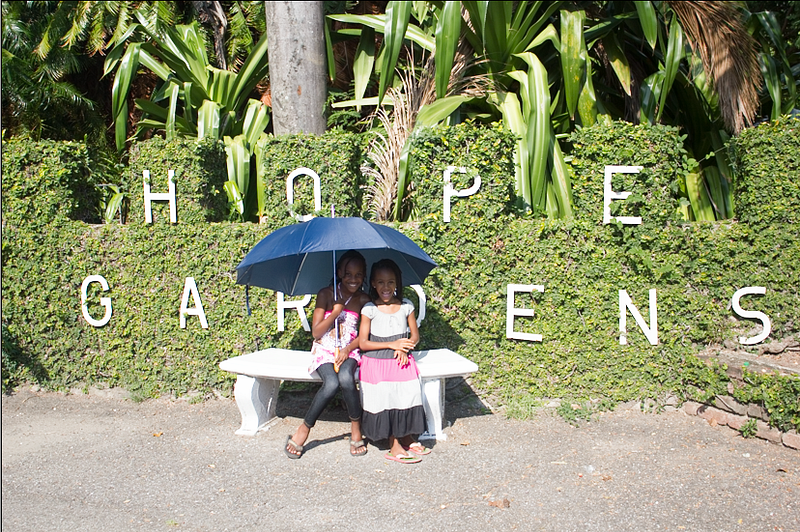
About six years ago, Kris and I stopped sending our daughters to elementary school. Our big idea was to make ourselves fully available to observe and support the natural ways our daughters might embrace learning without school. We learned that some called this idea unschooling.
Our exit from compulsory education meant the entire structure of our days was now wide open to new design. Prior to school-free living, our bedtime, our waking time, our entire schedules were defined for us by the start and end times of school, dance class, gymnastics, soccer, swimming lessons, and of course, earning money.
He and I had already left corporate America and were juggling working from home in between schlepping Marley and Sage from one scheduled activity to the next. It was a series of daily symphonies:
Morning symphony
Kris wakes them and prepares them for the school bus/school. After Marley and Sage head out to take the school bus, Kris settles in and works (graphic designer, brand identity strategist). I wake and work (freelance writer, online teacher, life coach). We both get anxious around 2 pm-ish because the bus will drop off our daughters and end our work flow at around 3:10.
After-school symphony
3:10 arrives, so do Marley and Sage. They have their evening snack/debriefing, then start doing homework. Kris and/or I check their homework.
Break
The girls watch TV or play outside while Kris and I get back into our work flow.
Evening symphony
Shower. Dinner. Prepare clothes, etc. for school and work tomorrow
That reliable routine was in full alignment with societally approved Adulting. Our lives centered on working for money and getting involved in our daughters’ schooling so they could get the best education we could facilitate. They were getting learning by qualified adults, while we focused on increasing our income and saving for our future.
Once we were no longer tethered to a preset schedule for exploring ideas (subjects), learning, for the girls, became a more active process. They could see their own increasing equity in their learning process, and they took on that ownership with a sense of urgency.
They needed to go to the library to get all the books they now had time to read.
They needed to gather virtual piles of art tutorials on YouTube to practice drawing.
One needed to be in the kitchen whenever cooking was happening because she loved all things baking, food prep, and even food styling.
Another needed to consistently practice basic Japanese because she wanted to watch her favorite anime shows in their original language.
When they were in school, all they wanted to do when they got home was watch TV or play outside, or sleep. I had no idea how much that would change when we gave them equity. My guess was that they would’ve flitted about, get into different things, without much appreciation for focused attention on any one particular thing until they got adjusted to managing their own time.
Instead, I observed my daughters spending hours at a time on very specific things, much of which did not include watching TV or sleeping.
I marveled at their ability to find resources to answer any questions they had, including finding local resources they encouraged us to take them to explore.
I saw them use the public libraries the same way I use networking events as an entrepreneur — to connect with human and text resources for furthering particular goals.
I saw them shed the confines of cookie-cutter schooling and instead embody a voracious curiosity around language, digital art, animation, voice acting, world economics, geography, anthropology, and gaming.
I experienced them using Kris’s and my adult access to liaise between worlds and bodies of work. Examples include finding their own language tutors and emailing us “just to approve the first lesson,” or applying to produce panels at anime conventions and putting dates on our Google calendars to discuss the game plan should their panel get accepted.
Kris and I never wavered in our feeling that education was vital for our daughters. But, instead of continuing to outsource education to the school system, we started learning more about the ways our daughters were already effectively educating themselves.
The results — which are still unfolding — were that each of us became equally responsible for paying attention to our own tendencies and feelings, and defining our own needs, so that we could decide how best to spend our days. When we offered our daughters real shared equity in the design of our lifestyle, Kris and I began the transition from being owners to being partners.
The Ownership Model
When we owned our daughters, we determined their daily schedule, their activities, the things that would be central to their waking hours (academic and social education). We viewed them as people who needed skills that were best obtained by going through a particular system of learning (traditional school). Whether or not Marley or Sage agreed with our choices was not a relevant part of our parenting; it was more so a side effect of children’s natural way of rebelling or pushing the envelope.
As their parents, it was up to us to set and enforce boundaries until the girls showed enough maturity and were educated enough to lead themselves. We were physical protectors, but we were also protectors of their future, mainly by managing what they did in their present.
And now that our daughters own themselves, we get to be partners.
The Equity Model
Much of our responsibility as adults raising unschooled children is to observe. In fact, observation, for me in particular, was a critically important part of my continued deschooling process.
As an adult immersed in Self-Directed Education through unschooling, I am constantly practicing ways to observe without reacting, and to have opinions without needing them to be accepted by others as truths.
Now, this feels like part of a spiritual practice, a meditation, a thing that helps me to better manage me. Now, by choosing to prioritize a harmonious relationship over a hierarchical one, (maybe the word is not hierarchical, maybe it’s oppressive), I get to practice what I believe in terms of social justice.
And in doing so, I also get to practice keeping them whole. Allowing them to grow into themselves without me pressuring them based on my shit.
This partnership does not in any way lessen our roles as parents, nor does it always makes things any easier. There are times when we make decisions for the family against the girls’ agreement. Sometimes Kris and I lead. It also means that Marley and Sage get to lead too. This is part of our practice and duty as their parents.
Raising Free People
The way we see it, it is unlikely that we can prepare Marley and Sage for a life of liberation by rooting them in oppressive parenting and education models. We cannot see how it is possible to raise free people by acclimating them to oppression.
At 12 and 10 years old, they have already experienced oppression, so they know its stark contrasts to freedom. As we continue to learn and practice unschooling, we are clear that we don’t need to add more structure to our daughters’ lives. Instead, our job is to help keep their path to freedom, to self-actualization, more clear. If their father and I meet our intentions, our daughters will be skilled at managing and loving themselves.
They will have had practice deciding what’s best for them.
They will have had support from people they rely on (Kris, me, our extended biological family, our village), but not put our views of them over their view of themselves.
They will be versed in liberation, both in language and practice, and our role will be as partners in their journey, not obstacles to their organic unfolding.

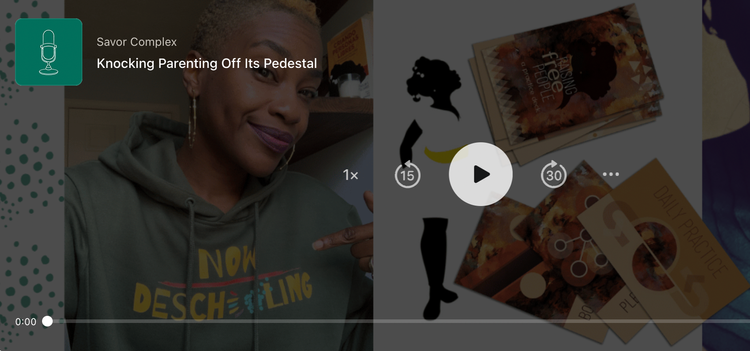
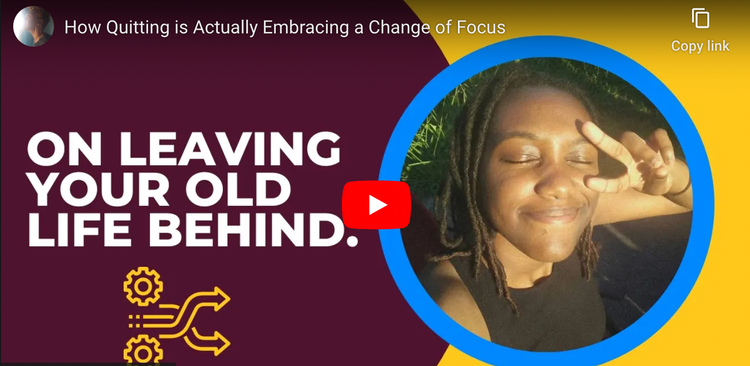
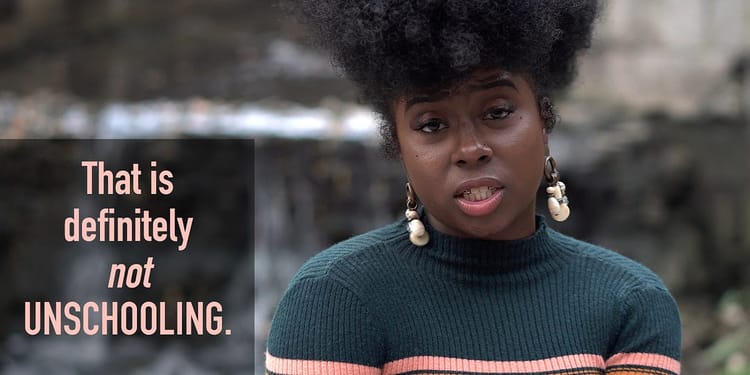
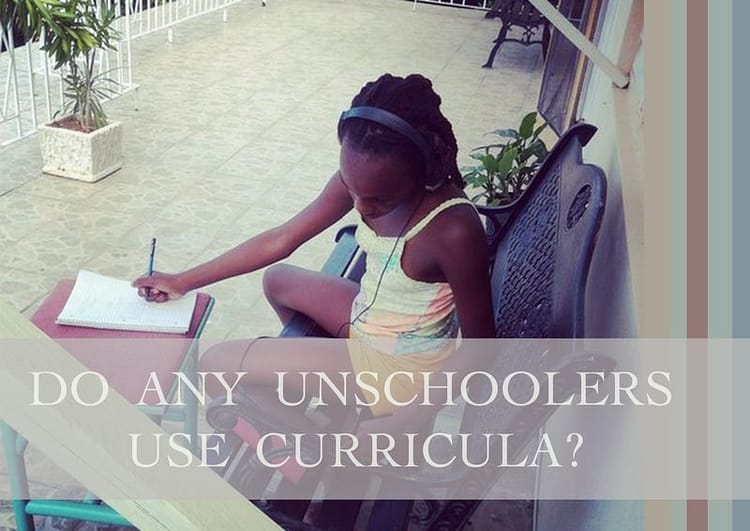

Member discussion